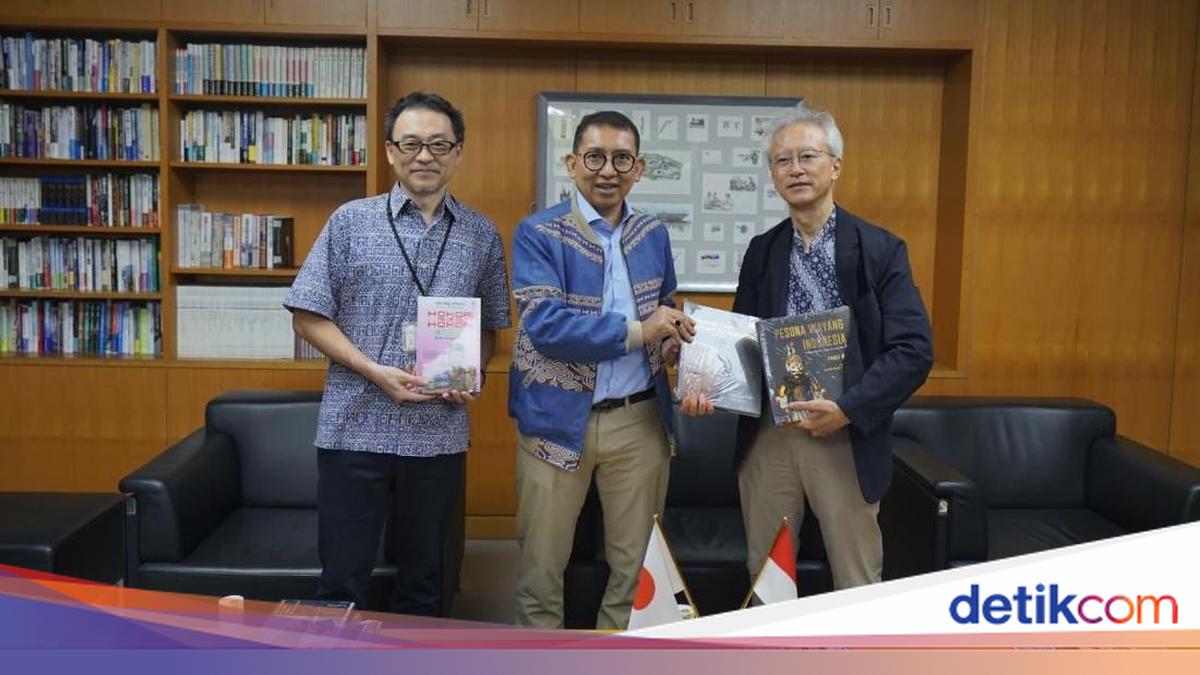Jakarta – Minister of Culture of the Republic of Indonesia Fadli Zon emphasizes the importance of strengthening research and study of Indonesian culture. It aims to become a basis for the development of science and international cooperation in the field of culture. During his visit to the National Museum of Ethnology (Minpaku) in Osaka, he emphasized that Indonesia is not only a source of world -cultural heritage, but also a center of knowledge that contributes to the development of global cultural and humanities. “Indonesia has extraordinary cultural wealth. But what is no less important is the knowledge born of culture itself. Through research and academic cooperation we deepen our understanding of people, history and civilization,” said Fadli Zon on Sunday (12/10/2025). Browse to continue with the content The meeting in Minpaku has brought together cultural academics in Japan who have long researched the Indonesian culture, including Prof. Shota Fukuoka, Deputy Director of Minpaku and Ethnomyusicologist who examines Sundanese music; Prof. Rintaro Ono, maritime archaeologist and curator of the Asia O-Oceania exhibition; Hiroyuki Imamura, ethnologist and researcher of the traditional martial arts Pencak Silat; and Masami Okabe, researcher on Javanese dance and culture. The discussion focused on collaborative research and development of cultural studies in various fields, ranging from ethnomusicology, dance, maritime anthropology, traditional martial arts, to Indonesian ethnography. Fadli Zon also explained that a number of study activities currently performed by the Ministry of Culture are being conducted. “Currently digitizing our cultural archives, restoring and studying the Gunung Padang megalytic territory, as well as studying the study of different cultural heritage such as Wayang and documentation of Indonesian beads,” he said. “We also only agreed to return 28.131 fossils from the Dubois collection from the Netherlands as part of research on the prehistoric heritage of Indonesia,” he continued. Apart from museums, Minpaku is also a leading research institute for anthropology and ethnology in Asia under the National Institutes for the Humanities (NIHU). Minpaku, who in 1977 in the former Expo 1970 Osaka area, where Indonesia first participated in the Expo, has now opened more than 50 permanent researchers and ethnographic collections from all over the world. On this occasion, Fadli Zon also compiled the special exhibition ‘Humans and Boats: Maritime Life in Asia and Oceania’ by Prof. Rintaro Ono. This exhibition shows a collection of boats and maritime artifacts from Indonesia, including traditional boats, Bajau strain artifacts, as well as images of ancient boats in the Maros and Muna caves. “This collection shows that Indonesian maritime civilization is one of the oldest and most influential in the world. The sea for Indonesia is not just a resource, but a space of culture and knowledge that forms our identity,” says Fadli Zon. He also checked the permanent exhibition for the Southeastern Asia region with the theme ‘A Day in the Life of Southeast Asia’, which shows the dynamics of community life in rural and urban areas, from subsistence, recreation to folk art. A number of Indonesian artifacts such as masks, Wayang, Batik and traditional musical instruments show the great contribution of Indonesia to the Mosaic of Southeast Asian civilizations. He explained that this meeting is expected to strengthen the Indonesian and Japanese cultural research network. As well as opening opportunities for the development of cross -disciplinary studies between academics from both countries. “This research collaboration is the best way to expand the global understanding of Indonesia and make our culture a living source of knowledge,” Fadli Zon concluded. Also check out the video “Minister of Culture on Music Tantme: All parties must get a win-win solution” here: (ANL/EGA)
Minister of Culture Fadli Zon encourages the strengthening of Indonesian cultural studies in Osaka
